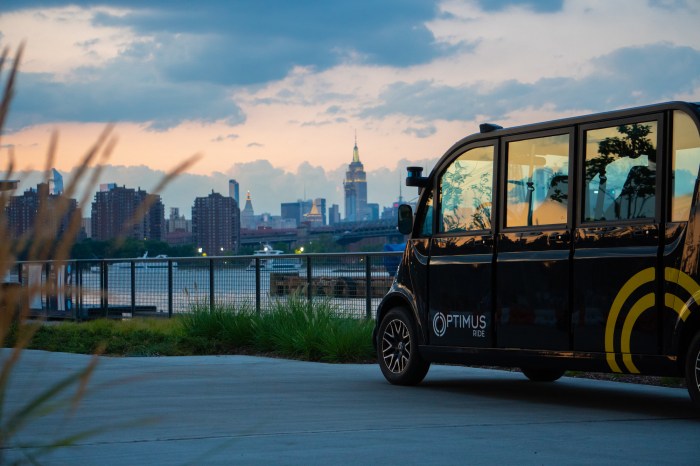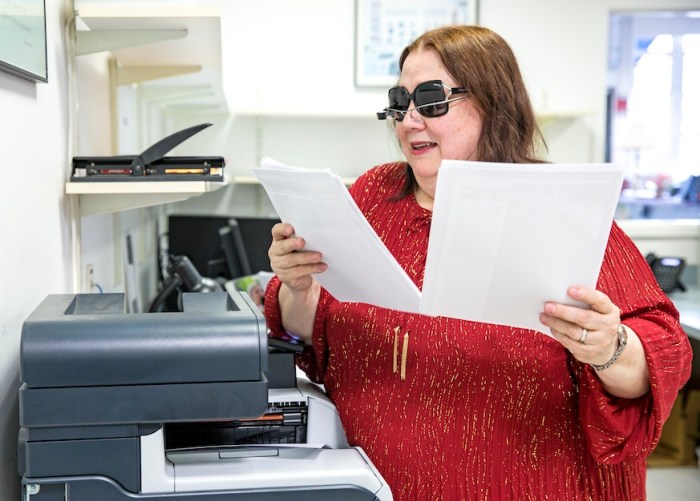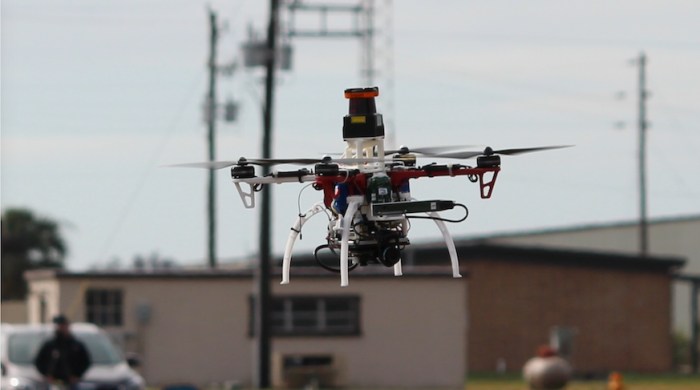The revolution will be virtualized — and Boston will be ready.
That’s what the developers, artists and businesspeople of the Boston/Cambridge virtual reality community told Metro this month as we dove deep into the up-and-coming world of VR.
The idea of immersive entertainment isn’t new. Researchers and hobbyists have been tinkering with equipment for decades. But thanks to the emergence of new, affordable hardware, Boston-area insiders say, VR is about to explode. The excitement in the city is palpable.
“I’m like a 3-year-old on a sugar high. You wouldn’t believe it,” said Jeffrey Jacobson, a VR consultant who’s an industry veteran.
Jacobson is one of the organizers of Boston’s uncommonly popular virtual reality meet-up, which every month draws more than 100 enthusiasts. With more than 1,300 members and counting, it’s the fifth largest of its kind in the world. Its members have big ideas. From art and game design to architecture and medicine, Boston industry leaders told Metro, strap-on headsets could bring huge improvements to education, medicine, entertainment and design. This is the beginning of big change, innovators here told Metro, and they are scrambling to be among the first and best in their field, pivoting from work in 2D to building immersive environments and games. “I really doubled down on VR because I really feel like that’s where the opportunity is,” said Jono Forbes from Boston gaming company Defective Studios. His company was making a world-building game— a kind of distant cousin of MineCraft —- called VRMT.He said the group of gamers in Boston is close-knit, and less brutally competitive than in other global tech hubs. “It’s a smaller pool, and it feels like you can get traction easier here than in Silicon Valley, where there’s too much noise,” he said. “Everybody sees an opportunity, but moreover is just really, really excited by the technology.” At the center of the VR universe: Oculus. It’s affordable, it works and, thanks to a $2 billion buy-infrom Facebook last year, it has name recognition. Developers have had access to it for over a year, and it’s set to become available to consumers in 2016. For Boston’s indie programmers and start-ups, sources told Metro, that means the clock is ticking. Sitting in a conference room at the Cambridge Innovation Center, Amedeo Mapelli fired up his desktop computer and demo-ed Simmetri, the project he’s been fine-tuning for a decade. It’s a tool like Photoshop that helps artists make projects like interactive music videos, then plunk the viewer inside. (In one video, multicolored blocks bounce down a hill in slow-motion to moody techno. Another follows the life and death of a butterfly, whose wings you control.) And, he told Metro, he needs to finish it, now.
“Before, I was like, ‘I can kind of do this indefinitely,’ Now there is pressure, definitely,” he said.
A company called virZoom, which makes VR games that use sensors attached to an exercise bike, said it is timing its release with the release for Oculus. With all the attention virtual reality is getting, and with Boston is looking to carve out a space for itself in the industry, Mapelli said, area techies are trying notto make junk just for the sake ofmakingit. “All of us in the VR community don’t want to happen is trendy, hype-y things that don’t amount to anything,” he said. “The important thing is for people to be questioning what they’re using and always asking: does this add something new? Is it useful?” Positioned behind laptops at a U-shaped table in the British Consulate office in Cambridge, a group of two-dozen developers hacked away at their VR projects, passed around headsets from Oculus and Google Cardboard – the DIY-spirit $24 alternative to pricier sets – and chatted in giddy circles about the virtual future. It was the first-ever Boston VR Devs hackathon – there were plans to hold one a month – and it started with a Skype call to a VR expert in the UK named Tim Edwards.
The VR hackers came at the tech from diverse entry points. Dan Yamins, an MIT researcher, talked about the possibilities for neuroscience research. Michael Schenck work-shopped ideas for his VR treasure-hunting game called “Lost Loot.” Henry Zhou, a junior at Tufts, said he saw VR as a way to make interactive livestreams of overcrowded computer science classes for students to watch at home. Jeff Bail, one of the meet-up’s organizers, told Metro he was most excited about medical virtual reality, and all its possible uses in teaching hospitals and research labs. A developer in the city has already begun making an app that can help patients with autism. Another is designing VR therapy for people with eating disorders. Innovation in virtual reality could start in small communities like his, he said.
“We’re really hoping to make Boston a VR hub,” Bail said. “And that’s really a secondary mission. For me, the primary thing is bringing people in, letting them try our VR and see what it’s all about.” Want to try out some VR? The next Boston VR Meetup is scheduled for Wednesday, Aug. 26. This article has been corrected to include the proper spelling of Simmetri.












